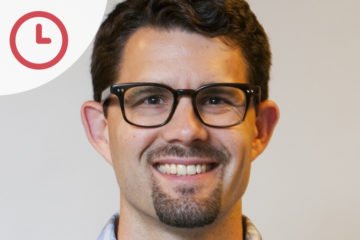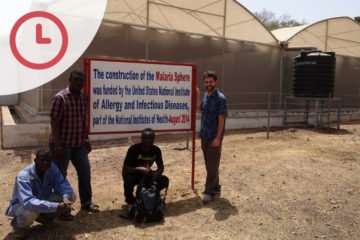Podcast Available on iTunes and Spotify.
Hello, I’m Thomas Locke and this is Five Minutes, the podcast that brings you closer to the people fighting malaria.
Today, I’m joined by Jeremy Lefroy MP, the Chair of the All-Party Parliamentary Group on Malaria and NTDs.
Political attitudes are vital to the success of malaria elimination efforts and his responsibility is to inform other Parliamentarians about the disease. Today’s a good time to speak because the group’s annual report was released earlier this week.
Jeremy, good morning.
Good morning.
What is the purpose of the All Party Parliamentary Group on Malaria and NTDs?
Its purpose is to bring together parliamentarians both from House of Commons and the House of Lords who have a real interest in this area of malaria and neglected tropical diseases and to encourage support for work in that area both by the government through Department for International Development but also more generally.
And how does the work that you do differ from that of the Department for International Development?
Well, the Department for International Development has a lot of money which it can allocate in various ways and obviously, it does a great deal in both malaria and neglected tropical diseases. We are simply a group who are interested in this area, want to find out more, want to encourage the government to invest in both areas but invest in a sensible and economic way. So look at the new medicines, look at the new vaccines that are becoming available, look at the ways in which various countries run their programmes on malaria and neglected tropical diseases. It’s a combination of information, of obtaining information, of providing information to parliamentarians, as for instance in this week’s Annual Report, and also of advocacy. For instance, we will retain close links both with DFID but also organisations like The Global Fund against AIDS, HIV, TB and Malaria to hear the kind of work that they’re doing and if we believe that it’s important work, which in this case we certainly do, then encourage the UK government to support that organisation.
Every year you publish your Annual Report, what’s featured in this year’s publication?
It’s a report on progress, so we look at all the neglected tropical diseases, we have a table showing what is available, what progress has been made, in terms of cases covered, and for malaria as well, we look at the overall success in bringing down both malaria and NTDs. This year we found that actually, progress has stalled both on malaria and on a number of neglected tropical diseases. We ask experts to write articles for us. It’s an attempt, it’s not a scientific publication in any way shape or form, but it’s an attempt to provide a snapshot of where we are each year against progress on malaria and NTDs.
You say that you’re not DFID, you don’t have the budget of DFID. As a parliamentary group, how much power do you have?
I wouldn’t say we have power, we try and have some influence both on colleagues and elsewhere on the British government simply by trying to find out what is working, what isn’t working and what is important for the future and then encouraging, not just the government, but parliamentarians and indeed other bodies in that direction. It’s also a place where expert scientists, those on the ground, can come together and exchange ideas. So we have people who come to our meetings to find out what progress is in a particular country on a particular drug and so on.
You mentioned that progress has stalled and that significant developments have been lost. With that in mind, what does the future of the All-Party Parliamentary Group on Malaria and NTDs look like?
Well, I believe it’s just as important as ever. But our job now is to ensure that the stalling that we’re seeing is not an excuse or a reason for governments to say this is not working, let’s put the money elsewhere. It’s precisely at this stage that we need to continue the work. We’ve seen this before, we saw it in the 1950s, we saw it in the 1980s and in both cases, we saw malaria come back with vengeance. We’re determined to make sure this doesn’t happen again.
Jeremy Lefroy, Thank you.
Thank you.


